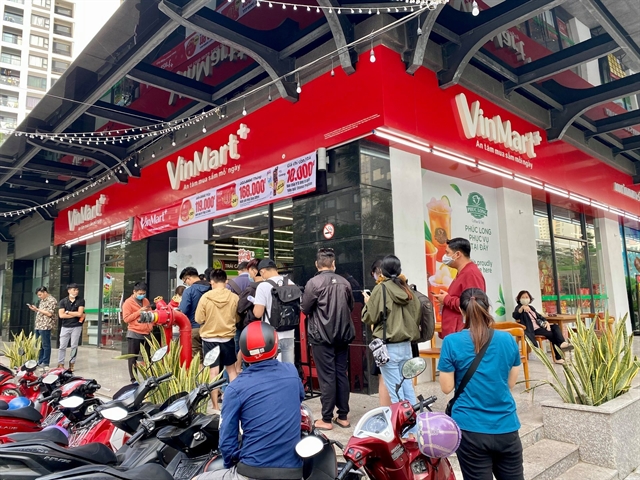Viet Nam's retail market has recently recorded strong growth and its excitement is also reflected via the successful deals of injecting capital from foreign investors into potential domestic retailers.

Viet Nam's retail market has recently recorded strong growth and its excitement is also reflected via the successful deals of injecting capital from foreign investors into potential domestic retailers.
In 2016, more than 50 per cent of Viet Nam's retail market share belonged to foreign enterprises but now Vietnamese retailers account for about 70-80 per cent of the number of points of sale across the country. Notably, Vietnamese businesses have worked together to create a foothold in the retail market. The most prominent example is the merger between Masan Group and Vingroup, becoming one of the largest retail and production chains in Viet Nam.
In fact, Vietnamese retail businesses have aligned and found each other's strengths to develop. In particular, leading retail enterprises in Viet Nam have developed multi-channel sales to keep up with the development of the digital technology era.
They have also produced agricultural products, food and consumer goods by themselves to bring to customers, thus minimising intermediaries and reducing costs to enhance competitiveness in terms of price in the market.
According to economic experts, it is time for Vietnamese businesses to confidently redraw the retail map of Viet Nam, act together, firmly master the distribution system and be ready to open doors to welcome Vietnamese goods to serve domestic consumers.
Vietnamese retail firms have not only changed production and business models to adapt to the COVID-19 pandemic and meet the needs of consumers but also continuously attracted new sources of foreign investment capital.
Specifically, Masan and the Republic of Korea’s conglomerate SK Group have announced the signing of an agreement to buy shares of The CrownX (the Consumer-Retail platform that owns Masan Consumer Holdings and WinCommerce) with a total value of US$345 million. After the transaction, Masan and SK's ownership ratio in The CrownX is 85 per cent and 4.9 per cent, respectively.
Besides SK Group, a group of investors, including Alibaba and Baring Private Equity Asia, invested $400 million to acquire a 5.5 per cent stake of The CrownX in May 2021. The continuous pouring of capital by foreign investors has shown the potential of Masan's "Point of Life" - "All-in-one" strategy from offline to online.
Danny Le, General Director of the Masan Group, said the investment agreement of SK Group has asserted the firm's belief in the success of the "mini-mall" model on a national scale, adding that Masan's next step is to accelerate digitisation to fully serve the essential needs of consumers, from products to services on both offline and online channels.
A recent survey by the Vietnam Report JSC showed that the retail channel is still playing an important role in the distribution of goods and the connection between production and consumption. In particular, the modern retail system previously accounted for only 30 per cent of consumers' shopping needs, but when many traditional markets are still closed, chain stores and supermarket systems have been making efforts to promptly respond.
According to retail expert Vu Vinh Phu, it's time to redraw the retail map of Viet Nam with domestic enterprises dominating the market. Notably, the leading enterprises today are focusing on multi-channel development. They engage in all stages from production to retail or cooperate with each other to bring products directly to consumers, helping to lower costs and improve competitiveness, he said. — VNS





